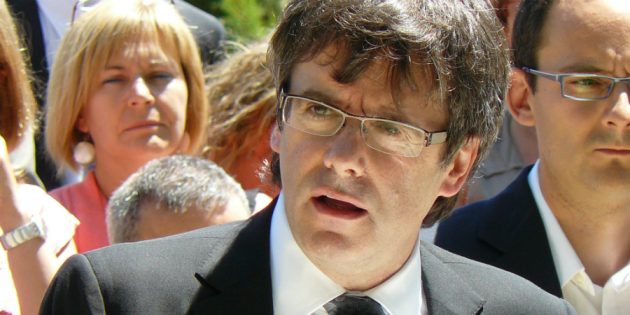Catalan independence activist and former regional government president Carles Puigdemont confirmed today that he will return to Spain on Thursday, after more than six years living abroad to escape justice in the country.
Puigdemont, who was elected as an independent deputy in the Catalan elections on May 12, said he had begun his “journey back from exile” with the aim of being in Barcelona on Thursday for the parliamentary session in which the Socialist Salvador Illa will be voted in as the new president of the regional government (known as the state).
The independence leader remains the target of an arrest warrant in Spain, and today, in a video clip posted on social media, he admitted that he faces arrest on Thursday.
Puigdemont, who led Catalonia’s unilateral declaration of independence in 2017, said his arrest would be “arbitrary and illegal” because an amnesty law for separatists in the region, approved by the Spanish parliament, has already come into effect.
The Spanish Supreme Court, in a first opinion, rejected the application of amnesty to Puigdemont, who has filed an appeal against this decision and is awaiting a response.
“We cannot remain silent in the face of the Supreme Court’s rebellious stance,” Puigdemont said today, accusing the Spanish judicial system of wanting to obstruct “the popular will expressed through parliaments.”
Puigdemont said the “challenge” facing the Supreme Court “must be responded to and confronted” in the name of democracy, justifying his return to Spain on Thursday.
Puigdemont’s arrest, if confirmed, would likely lead to the suspension or postponement of the parliamentary session to install the region’s new leader, according to statements by the president of the Catalan regional assembly, Josep Rul, and several parties.
Puigdemont’s supporters and opponents have already called for rallies and demonstrations on Thursday near the Catalan parliament building located in Barcelona’s Parc de la Citadel.
Police are already setting up a security perimeter around the building and will protect all entrances to parliament, according to police sources.
The Catalan Socialist Party (PSC, the regional structure of the Spanish Workers’ Party, PSOE) won the most votes in the recent Catalan elections, in which the independence forces lost the absolute majority that had always secured separatist executives in the country’s region in the past 14 years.
Salvador Illa negotiated the support of the Republican Left of Catalonia (ERC), which was the third party with the most votes, to become state president.
The other main independence party, Together for Catalonia (JxCat, conservative), led by Carles Puigdemont, had the second-largest number of votes and was betting on a repeat election.
JxCat condemned the European Rescue Council for its willingness to put an end to the Catalan separatist front and enable a “Spanish” government in the region.
The political situation in Catalonia has had, and should continue to have, a direct impact on governance in Spain, where the Socialist national executive of Pedro Sánchez depends on parliamentary support from both the CER and the JxCat party.

“Hardcore alcohol maven. Hipster-friendly analyst. Introvert. Devoted social media advocate.”

